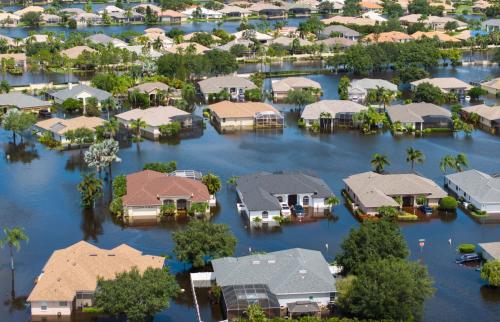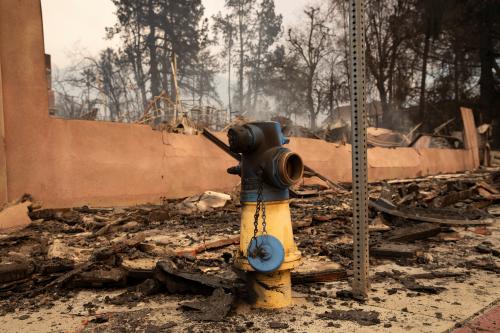This is not exactly a high-water mark for constructive relations between federal and state governments. But this is hardly the only point of tension in American intergovernmental relations as 2013 nears its end.
Take fracking. The emergence of vast quantities of natural gas and oil through hydraulic fracturing and horizontal drilling presents extraordinary economic development opportunities as well as environmental protection challenges. Due to a range of statutory exemptions in existing federal law, governance on this issue is essentially delegated to states and localities.
Ideally, states and localities blend their skills to maximize energy yield while tailoring environmental protection to distinct local conditions. Indeed, states routinely argue that the federal government has no business in this area because of the need to carefully craft policy to local hydrogeological conditions.
But states tend to grab power away from localities when they get the chance, just as the feds do with them. Thus far, fracking may be no exception. That is why Pennsylvania’s December 19 Supreme Court decision may be far more jolting to the future state-local dynamic than any of the expanded earthquakes we are witnessing that appear to be linked to increased fracking and even disrupt major college football games.
In this case, the Court voted 4-2, with support from justices appointed by governors of both parties, to sustain a lower court decision to overturn some key provisions in Pennsylvania’s controversial 2012 fracking legislation, most commonly known as Act 13.
This legislation was a shale developer’s dream in many respects, including aggressive preemption of most local controls of land use through conventional zoning powers. But Pennsylvania went much farther than other states by linking any local government funds collected through an “impact fee” on drilling to full and systematic local compliance with all facets of state regulation. In short, the state decided not to impose a tax (literally placating Grover Norquist), instead allowed localities to establish an impact fee, then insisted on collecting the revenue from the locally-approved fee, but only returned revenue to localities if they toed the line. We raised major questions about this legislative approach in a May 2013 article published in the political science journal, Review of Policy Research. In turn, public opinion analysis released earlier this year by the Center for Local, State, and Urban Policy (CLOSUP) suggested that this approach conflicted with public sentiments on shale gas governance.
At its worst, is the federal government ever as heavy-handed with states as Pennsylvania was with its localities in this case? Perhaps not surprisingly, the Pennsylvania court case was brought by a series of local governments who were seen as being in some variance from state control and thereby deemed ineligible for impact fee bounties.
The majority opinion concludes that the Pennsylvania General Assembly and Governor Tom Corbett overstepped their authority, noting that the “protection of environmental values” constitutes a “quintessential local issue that must be tailored to local conditions.” It thus reverses the strong state grab for land-use control and reopens some fundamental questions about longer-term policy for developing the shale resource in Pennsylvania. All of this is to be determined and likely fought over in the 2014 election, which has already seen a large number of Democratic challengers to Corbett target the governor’s shale gas policies as a liability in his re-election bid.
This very question is popping up just about everywhere in America with some accessible shale deposits. This is reflected in recent local efforts from Dallas to New York counties to Colorado municipalities to put restrictions on shale development within their boundaries. Ironically, many of the scholars and organizations who are most sensitive to perceived federal encroachment on local land use have quietly endorsed state efforts to preempt local decision-making when it comes to shale.
Going forward, this suggests that states and localities might find need to join common cause and devise policies that work not just for short-term acceleration or delay of drilling but rather reflect a broader consensus that can work for the long-haul. We tend to assume that state and federal authorities cannot work out such arrangements, largely because of a dysfunctional federal partner. But can states treat localities differently, as intergovernmental partners rather than pawns, in tapping the potential of shale deposits?
The Brookings Institution is committed to quality, independence, and impact.
We are supported by a diverse array of funders. In line with our values and policies, each Brookings publication represents the sole views of its author(s).



Commentary
Pennsylvania’s Fracking Case: State and Local Governance Challenges
December 24, 2013